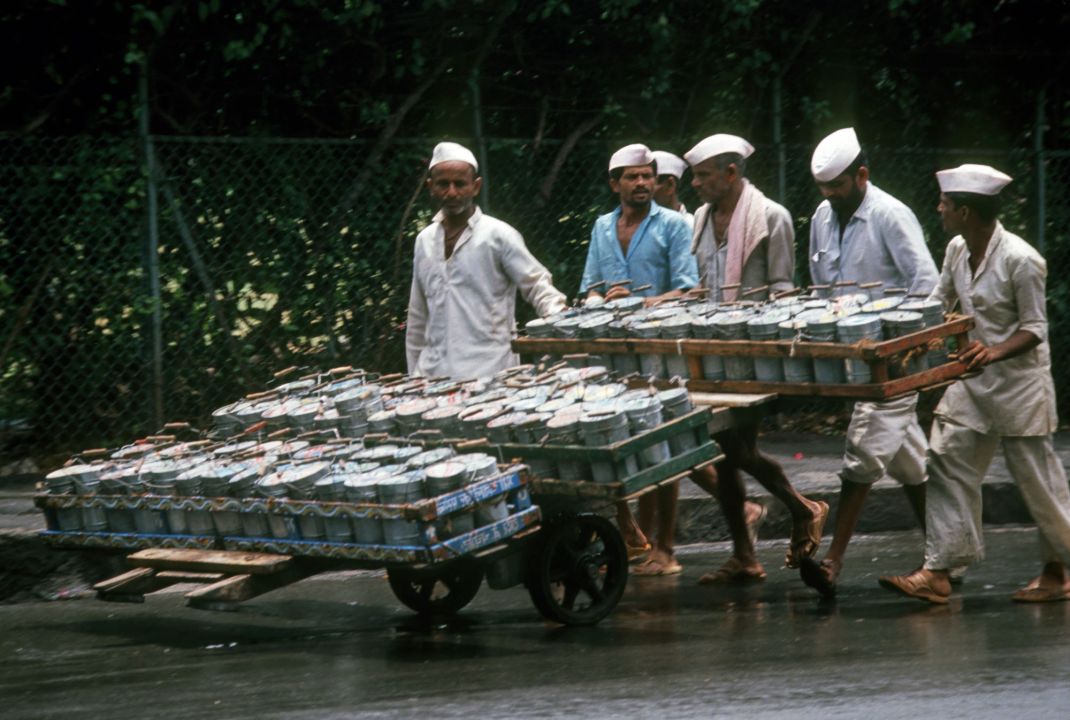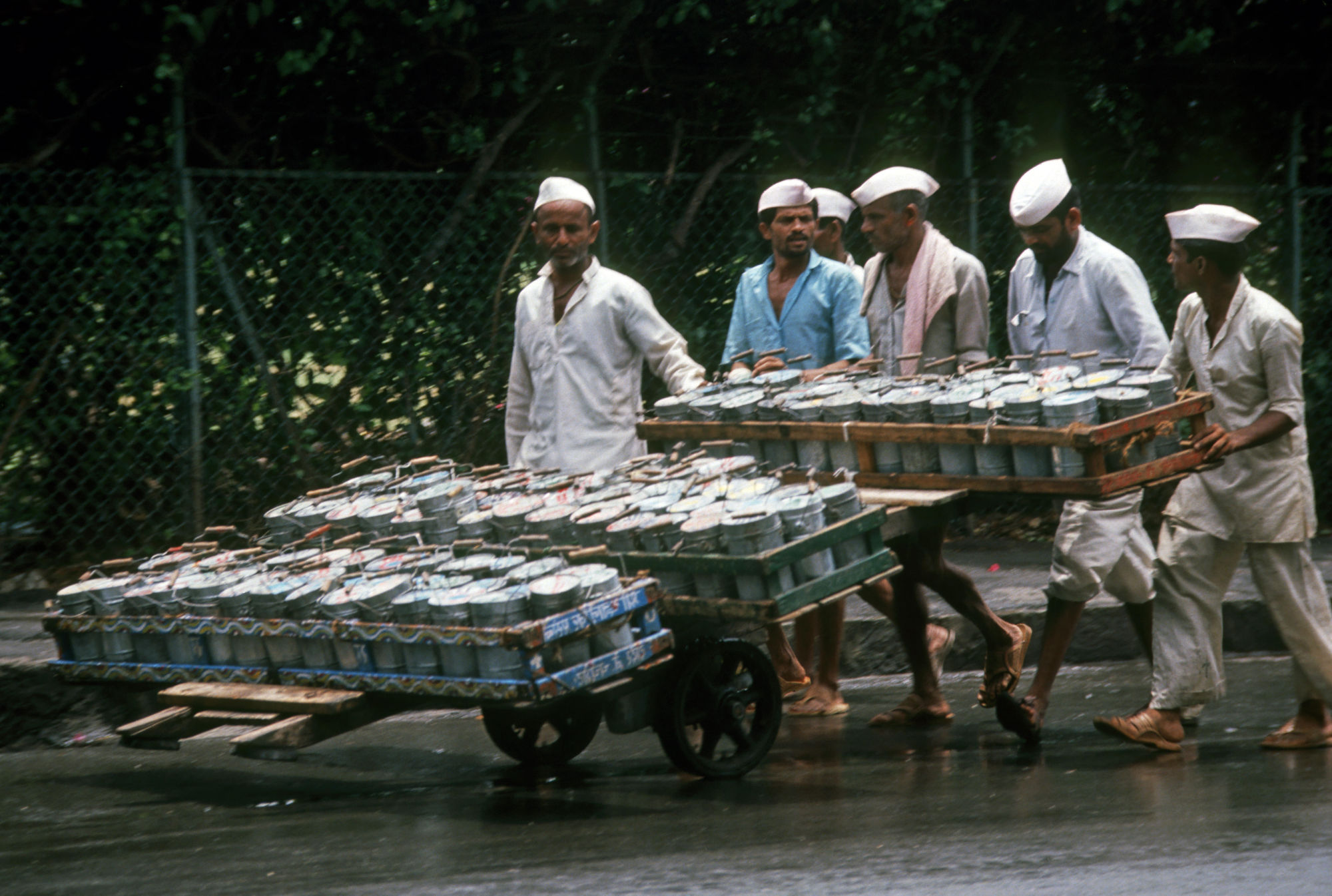Mumbai, India
Weaving through the throng on a hot May afternoon, Kiran Gavande had a determined look on his face, despite the sweat that trickled down from his head. This wasn’t a routine trip to the market in Mumbai’s Lal Baug neighbourhood for Mr Gavande. Instead of buying onions and tomatoes, he was searching for a silk turban and an intricate shawl to give as a gift to King Charles.
His gifts would soon be handed over to the British High Commission before being shipped over to the UK and presented, by hand, to Charles, following his coronation today.
‘When we heard of Charles’s ascension to the throne, I wrote to him personally to offer my congratulations, I held a party and distributed sweets among my neighbours,’ recalls Mr Gavande, wearing a linen shirt and white Gandhi cap, known as a topi.
Back in 2003, Mr Gavande and his colleague, Raghunath Medge, met King Charles III for the first time. The monarch, then the Prince of Wales, was visiting India and requested a meeting with Mumbai’s Dabbawala community at the city’s Chhatrapati Shivaji Maharaj Terminus – formerly known as Victoria Terminus.
Since the 19th century, the several thousand-strong Dabbawala community have run a lunchbox delivery service for workers in India’s financial capital. To this day, they still deliver 200,000 lunches by hand using an intricate colour-coding system that identifies every box’s destination and recipient. The meals are delivered by bicycle via the city’s local train network.
‘We told Charles that he could only meet us between 11.15 and 12.15 because the customer is our God and that is our break time,’ recalls Mr Medge.
‘Charles was very interested in our coding system and he was amazed at the work we do every day. He even showed concern for our health, asking about our necks and backs as the buckets that we load onto our bikes can weigh up to 40 or 45 kilograms.’
It was the start of an unlikely but incredible friendship. Charles requested that the Dabbawalas deliver him food every day while he was in Mumbai. Then, remarkably, the future monarch invited two Dabbawalas to attend his wedding to Camilla in 2005.
Mr Medge was one of the two Dabbawalas who travelled to London for the occasion. He was unsure why he was chosen but believes it might have been because his grandfather claimed to have delivered food to Queen Victoria many years before.
‘When we met, we gave him one of the topi caps that we wear and then we saw the same hat on display in Windsor Castle surrounded by diamonds and other jewels from India,’ he remembers, laughing.
It was quite the trip for the portly 67-year-old who grew up in a simple one-room home in the village of Raj Guru Nagar, on the outskirts of Mumbai, and who normally earns £170 per month. He has no photos of his trip to the UK but the memories remain fresh.
‘When we arrived we were taken out sightseeing in London but we had only arrived in our Indian wedding clothes and it was freezing cold for us,’ said Mr Megde.
‘Instead of drinking chai tea to keep warm we were given whiskey and wine. We met the late Queen, who was very warm hearted and gave us tea and biscuits. She gave us a lot of love and respect.’
Mr Megde and his colleague, Sopan Mare, attended the wedding ceremony and the reception afterward, where they mixed with celebrities and dignitaries from around the world. A princess from the royal family of the western Indian state of Rajasthan was on hand to help translate for the two men and help them order vegetarian food. In India, it is custom to scatter rice over the heads of newlyweds. But, in accordance with British tradition, they said they threw rose petals instead.
When Islamic terrorists attacked Mumbai in 2008, killing at least 166 people, the Queen sent her condolences to the Dabbawalas. In turn, the Dabbawalas led the mourning in Mumbai when the late Queen died last year. At Byculla Railway Station, in the south of Mumbai, a stand was set up outside the entrance and Dabbawalas lit candles and said prayers for Queen Elizabeth II.
While Mr Gavande may have looked like just another flustered Mumbaikar as he navigated the crowds at Lal Bagh on Tuesday, he was instead strengthening the historic relationship between the United Kingdom and India. The Puneri Pagadi turban, worn by royalty in the Indian city of Pune, and a Warkari shawl, associated with several great emperors from western India, were purchased by Mr Gavande with pride.
‘Charles recognised the Dabbawalas when no one else did and elevated us to global status. He came and met us and it wasn’t just a performance, he really took a keen interest,’ said Mr Gavande.
‘We wish him happiness and prosperity and we hope that his rule lasts forever.’
Join The Spectator's Fraser Nelson, Katy Balls and guest Camilla Tominey from the Daily Telegraph for a special edition of Coffee House Live covering what kind of monarch Charles III will be, and whether the coronation will distract voters from the Tories’ losses in the local elections. 10 May from 7pm. Book your tickets today: spectator.co.uk/coronation







Comments